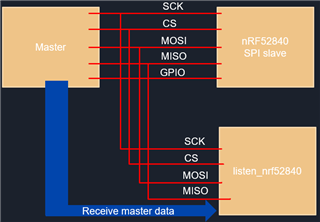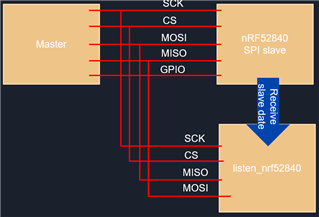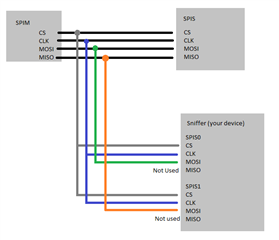My stm32 (as a master) uses SPI to communicate with nrf52840 (as a slave)
When my nrf52840 wants to send data to stm32, it will pull a GPIO to let stm32 generate a GPIO interrupt to read the data transmitted by nrf52840
Now I want to use another listen_nrf52840 (as a sniffer) to receive the data transmitted by both of them in parallel.
The SPI pin of my listen_nrf52840 is the same as the SPI slave, but it can only receive data from the master, as shown below

However, when I swap the MOSI and MISO pins of listen_nrf52840, I can receive the data sent by the SPI slave.
As shown below

Kind of like what a logic analyzer is doing
Can I change the pin number of listen_nrf52840 during operation?
Or is there any way for the SPI slave to receive data from another SPI slave and master at the same time ?
Thanks in advanced,
Poyi



